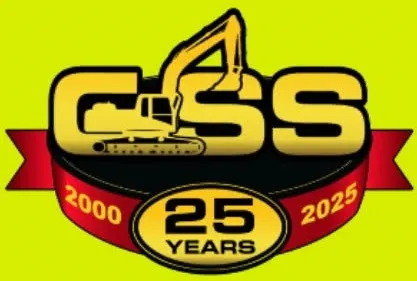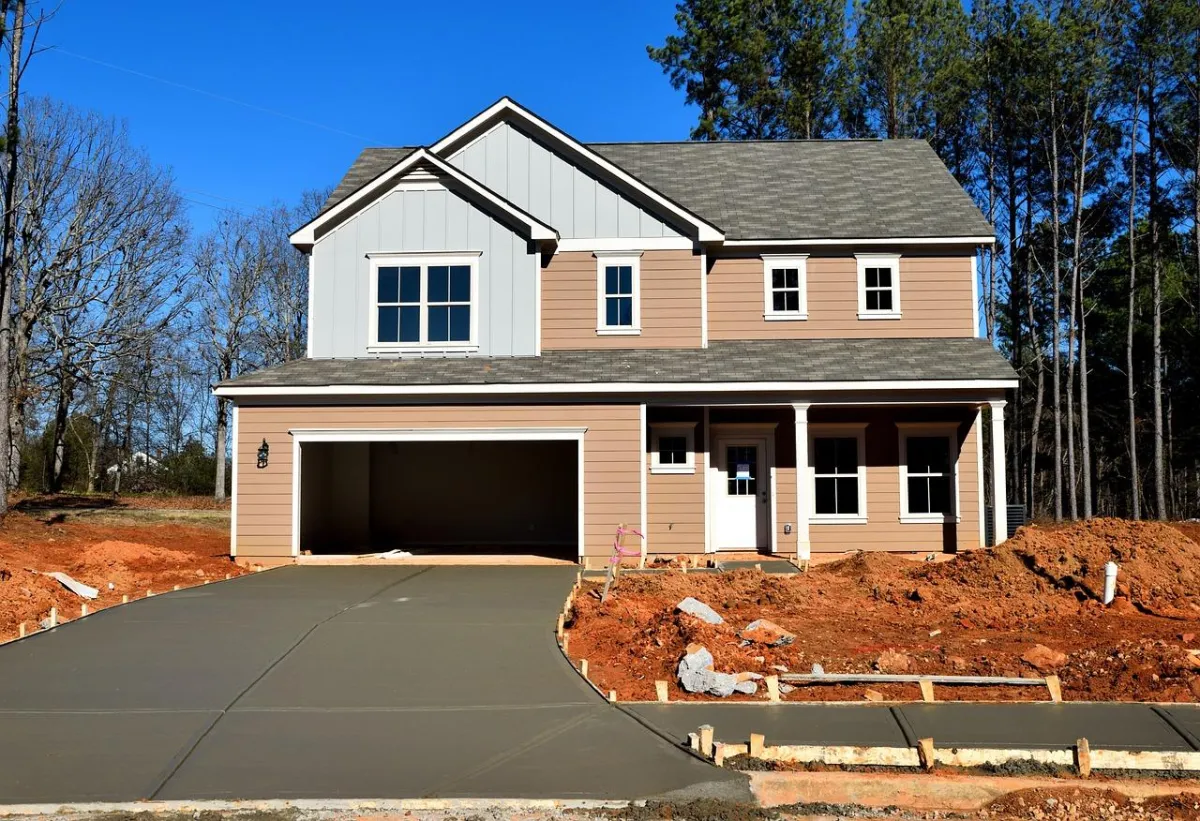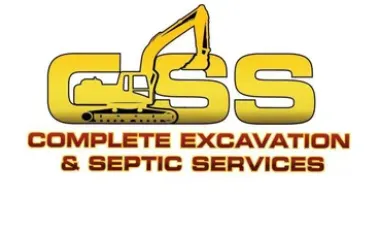
Proudly Serving: Grand Isle, Franklin & Chittenden Counties, VT and Clinton County, NY

Gravel vs. Concrete Driveways near Chittenden County, VT
Introduction: Choosing the Right Driveway Material in Chittenden County
You’ve probably noticed it yourself: every time you pull into your driveway, you’re either proud of how it looks and performs—or frustrated by the cracks, ruts, or mud. If you’re reading this, chances are you’re weighing whether gravel or concrete makes the better choice for your home in Chittenden County.
We know that homeowners here in Vermont don’t make these decisions lightly. You’re not just picking a material; you’re making an investment that affects your daily routine, your home’s curb appeal, and even its long-term value. And with our freeze-thaw cycles, heavy snow, and muddy springs, the decision feels even more complicated.
At Complete Excavation & Septic, based in Isle La Motte and serving Grand Isle, Franklin, and Chittenden Counties, we’ve seen firsthand how both gravel and concrete driveways perform in our local climate. While we’re not here to push you one way or the other, we are here to help you make the smartest choice for your home and lifestyle.

Understanding Gravel Driveways: Pros, Cons, and Local Fit
Gravel driveways have been around for generations, and for good reason. They’re practical, affordable, and relatively quick to install. For rural or larger properties, gravel often feels like the natural choice.
Pros of Gravel Driveways:
Lower upfront cost. Gravel is typically much cheaper to install than concrete.
Good drainage. Rain and snowmelt naturally filter through gravel, reducing standing water.
Easier to repair. Ruts or bare patches can be filled in with fresh gravel.
Rustic look. Gravel blends in well with Vermont’s countryside homes and larger lots.
Cons of Gravel Driveways:
Ongoing maintenance. You’ll need to rake, refill, and compact gravel regularly, especially after storms or snowplowing.
Less stable for walking/driving. Gravel can shift, leading to uneven surfaces and muddy spots.
Not ideal for smaller suburban lots. Gravel can spill onto roads, walkways, or into garages.
In Chittenden County, gravel often works well for homes with longer driveways, farms, or areas where drainage is a concern. But it can become a nuisance if you’re after a more polished, low-maintenance look.
Understanding Concrete Driveways: Pros, Cons, and Local Fit
Concrete is the go-to material for homeowners who want durability and a finished appearance. When poured correctly, a concrete driveway can last decades, even in Vermont’s challenging climate.
Pros of Concrete Driveways:
Long lifespan. A well-installed concrete driveway can last 30+ years.
Low maintenance. Aside from sealing and occasional cleaning, concrete requires little upkeep.
Strong and stable. Perfect for frequent vehicle use or heavier loads.
Polished look. Boosts curb appeal and blends well with modern or suburban homes.
Cons of Concrete Driveways:
Higher upfront cost. Installing concrete requires more material, labor, and prep work.
Cracking in freeze-thaw cycles. Vermont winters can cause expansion and cracking if drainage isn’t managed properly.
Repair challenges. Unlike gravel, repairs can be more complex and costly.
Drainage limitations. Without proper grading, water may pool on the surface.
Concrete makes the most sense for homeowners looking for long-term value and minimal upkeep. But it does come with higher initial costs and requires careful installation to handle local weather.
Gravel vs. Concrete Driveways: Key Differences That Matter in Vermont
When comparing gravel and concrete, the decision comes down to balancing cost, appearance, and lifestyle.
Installation Time: Gravel can be installed in days, while concrete requires proper curing time.
Seasonal Performance: Gravel handles water better, but can rut in mud season. Concrete offers stability but risks cracking.
Look & Feel: Gravel offers a rustic charm; concrete delivers a sleek, modern finish.
Maintenance Needs: Gravel requires regular upkeep; concrete is largely set-and-forget, with sealing every few years.
Cost of Gravel vs. Concrete Driveways near Chittenden County
Every homeowner wants to know: what’s this really going to cost me?
Gravel: Typically the most affordable upfront. Costs depend on driveway length, depth, and the type of gravel used. However, expect to budget for ongoing maintenance, including adding new gravel every few years.
Concrete: Higher upfront cost due to materials, labor, and site prep. But once it’s in, you won’t be spending much on upkeep.
Here in Chittenden County, many homeowners start with gravel because it’s budget-friendly. But over time, some choose to upgrade to concrete for the convenience and added home value.
Durability and Maintenance: How Each Material Handles Vermont Weather
Vermont’s climate is no small test for driveways. Between snowplows, salt, spring flooding, and freeze-thaw cycles, both materials face challenges.
Gravel: Snowplows often scrape off the top layer, meaning annual touch-ups. Spring mud season can create ruts.
Concrete: Stands up well to plowing but is prone to cracking if water seeps underneath and freezes. Sealing can help extend its life.
Neither option is perfect—but choosing the right one depends on whether you’d rather deal with ongoing maintenance (gravel) or higher upfront investment (concrete).
Curb Appeal and Resale Value: Which Driveway Makes a Better First Impression?
Think about the first thing visitors see when they arrive at your home: your driveway.
Gravel: Offers a classic, rustic appearance, especially fitting for country homes and larger properties.
Concrete: Delivers a neat, clean look that signals low maintenance and modern appeal.
When it comes to resale value, concrete generally wins. Buyers appreciate not having to worry about ongoing upkeep.
Environmental Impact and Drainage Considerations
Drainage matters here in Vermont, where heavy rains and melting snow are the norm.
Gravel: Naturally permeable, allowing water to filter through. Better for stormwater management.
Concrete: Impermeable unless designed with special drainage features. Can increase runoff if not properly graded.
If you’re concerned about water runoff, gravel may have the advantage. But with the right excavation and grading, concrete can also be installed in a way that manages drainage effectively.
What Homeowners in Chittenden County Are Saying (Real Experiences & Reviews)
Over the years, we’ve heard plenty from local homeowners:
“Gravel was cheaper at first, but after years of adding more, I wish I’d gone with concrete.”
“Our concrete driveway has been great, but we had to seal a few cracks after a tough winter.”
“Gravel works for us—we live out on a dirt road anyway, and it blends right in.”
These reviews remind us that there’s no one-size-fits-all answer. It’s about your property, your budget, and your lifestyle.
How to Decide: Matching the Driveway to Your Home and Lifestyle
Here are a few questions to guide your decision:
Do you want a low upfront cost or long-term savings?
Is your driveway long and rural or short and suburban?
Do you mind occasional maintenance, or do you want as little upkeep as possible?
Do you prefer a rustic Vermont feel or a polished, modern look?
Your answers will point you toward gravel or concrete. And if you’re still unsure, consulting a local excavation contractor can help weigh the specifics of your property.
Why Local Expertise Matters for Driveway Installation in Vermont
Driveway installation isn’t just about laying material—it’s about knowing the land. Here in Chittenden County, soil types, drainage patterns, and local weather all play huge roles.
At Complete Excavation & Septic, we specialize in tailoring each project to the homeowner’s property. We’ve seen gravel driveways that perform beautifully for decades and concrete driveways that withstand Vermont winters with proper prep. What makes the difference isn’t just the material—it’s how well the driveway is installed and maintained.
Conclusion: Gravel or Concrete—Which One Is Right for You?
When it comes down to it, gravel and concrete each have their place in Chittenden County. Gravel is affordable, flexible, and rustic, while concrete is durable, low-maintenance, and polished.
Your decision depends on what you value most: upfront cost, long-term investment, or daily convenience. And no matter which direction you choose, the key is having it installed correctly by a team that understands Vermont conditions.
If you’re weighing your options, we’re here to help. At Complete Excavation & Septic, our goal isn’t just to install a driveway—it’s to make sure it fits your home, your budget, and your lifestyle.

Hours:
Mon - Fri 9:00 am - 5:00 pm
Extended hours by appointment only.



All rights reserved | Privacy policy | Client Support Area
Disclaimer: Septic inspection credit is applied to septic installations only and must be redeemed within 7 days after a written quote provided upon state acceptance of design.
Disclaimer: Septic soil test credit is applied to septic installations only and must be redeemed within 7 days after a written quote provided upon state acceptance of design.
